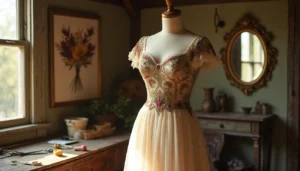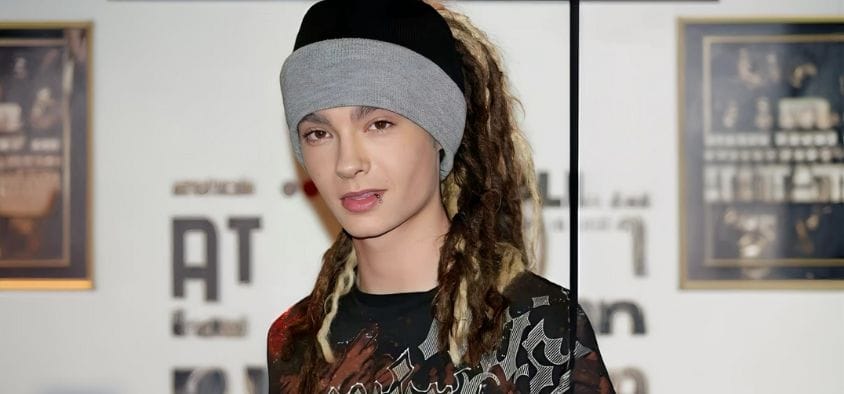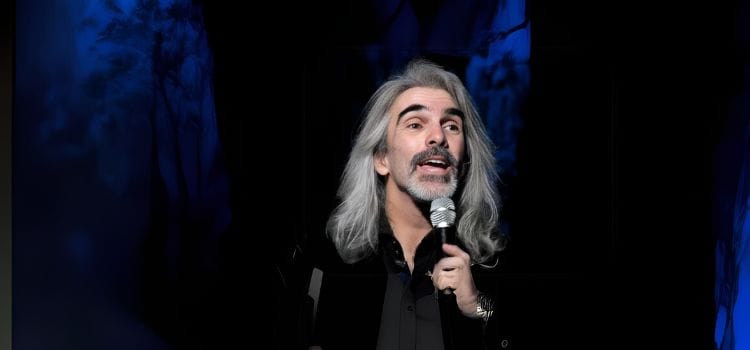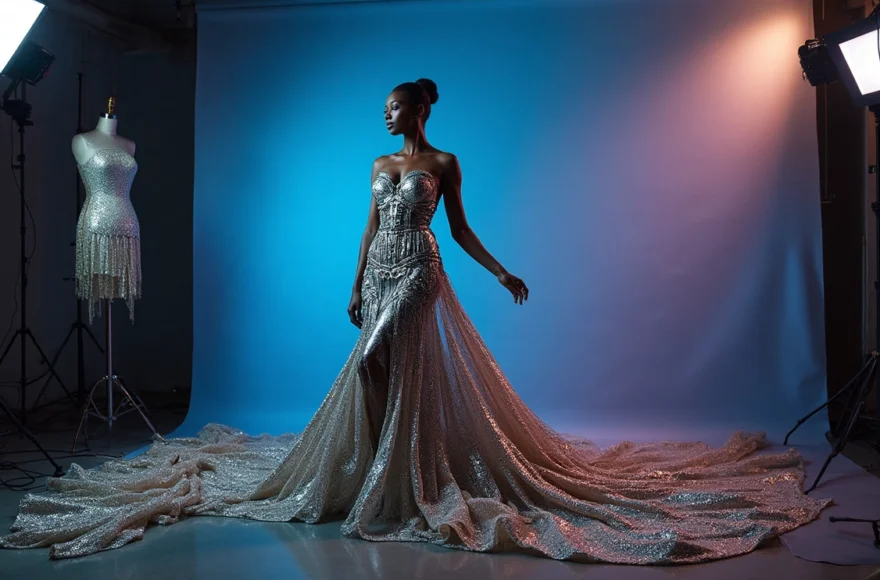Is SZA Muslim and Does She Wear Hijab? Her Journey Explained

As an Amazon Associate, I earn from qualifying purchases
Have you ever thought about SZA’s faith and her link to Islam? SZA is a Muslim girl from New Jersey. She is well known for the song “Good Days.” Her strong background as a Muslim shapes who she is. The way she grew up plays a big part in her music and her life.
SZA talks more about her faith now. She shares her pain with Islamophobia and how living in a home with two religions changed how she looks at the world.
Her story is full of color and heart. You can follow her journey from her early days to how she ties her faith in Islam to her work and daily life now.
SZA’s Religious Background and Beliefs
SZA’s bond with Islam started when she was young. She grew up in an orthodox Muslim household, raised by her Muslim father, Abdul Mubarak-Rowe (a CNN executive producer), and her Christian mother, Audrey Rowe (an AT&T executive).

SZA attended a Muslim prep school in addition to regular schooling, learned to recite Quranic verses, and followed Islamic modesty guidelines, like wearing baggy clothing and long sleeves during gymnastics and cheerleading. Her dad took part in faith activities at his mosque, and SZA often went with him.
SZA has a mixed religious background, but she feels closest to Islam. She says the clarity and simple ideas in Islam help her. They give her a strong base to live her life with purpose and focus. In a 2021 interview, she said, “I’ll feel most comfortable with Islam forever. It just makes most sense to me out of everything else… I like the clarity.”
Is SZA Muslim? Exploring Her Faith and Family Roots
SZA was born to a Muslim father and a Christian mother. Her story about faith is unique, just like her music. She grew up in Maplewood, a small suburban town in New Jersey, and followed Islamic practices while living among people with different beliefs. SZA once said, “I’ll feel most comfortable with Islam forever.” For her, Islam is a big part of who she is.
Her Muslim father taught her many important values, while her Christian mother played a strong role in her life too. These two sides helped SZA form her own special view of faith.
Life in a mostly white community was tough for SZA. Sometimes, she faced Islamophobia and felt alone growing up as a Black Muslim girl. She talks about how her faith, Islam, helped her stay close to her own people and hold on to her culture, even when things got hard around her.
The Meaning Behind SZA’s Name and Its Connection to Islam

Did you know that SZA’s name shows a part of her Islamic roots? Her real name is Solána Imani Rowe. This name has spiritual meaning, but her stage name, SZA, brings her even closer to her faith.
The name SZA comes from the Supreme Alphabet, made by the Nation of Gods and Earths. In this system, the letters in her name stand for “Sovereign,” “Zig-Zag,” and “Allah.” Some sources also note “Savior Zig-Zag Allah” as a possible meaning, reflecting her deep-rooted relationship with the faith.
For SZA, her name is about her relationship with God and the clarity that she finds through her beliefs. This link is not by accident. It is a clear sign that Islamic teachings have a big part in shaping the way she sees the world.
She has looked at ideas of spirituality both in her music and in interviews. By choosing to go by this name, SZA shows she feels proud of who she is. She shows how you can bring together artistry and faith. It is a good example of how someone can keep their culture real while still sharing who they are in their own way.
SZA’s Experience with the Hijab and Islamic Practices
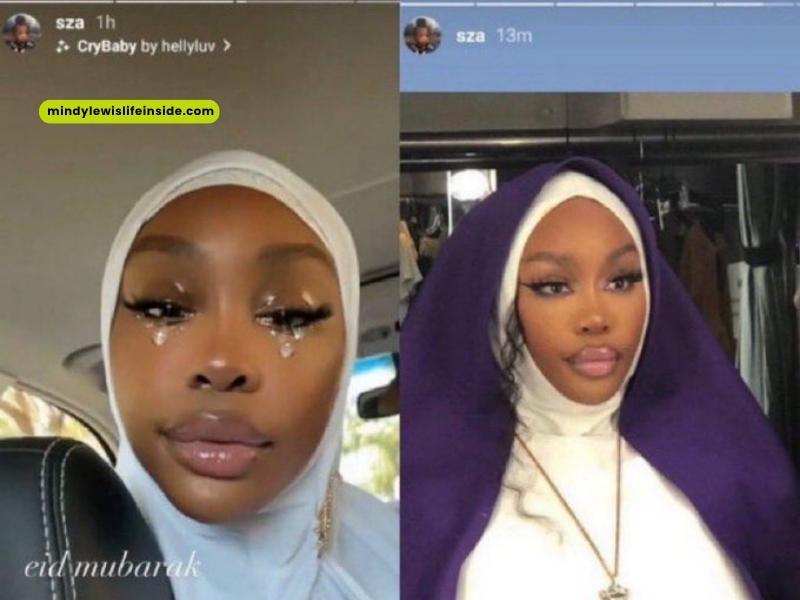
As a child, SZA liked to wear the hijab. This was a part of her Muslim upbringing. She wore hijab consistently as part of her orthodox Muslim childhood, attending Muslim prep school and dressing modestly. But after the events of 9/11, there was more Islamophobia. SZA started to feel unsafe, especially when she was in middle school and saw the way people treated her.
During this time, she felt regret since she let what others thought change some of her choices. SZA has spoken about being “chased home by children at school and getting my hijab snatched,” and even seeing someone throw a brick at her father’s mosque.
These experiences made her stop wearing hijab daily, but she has periodically returned to it for special occasions, performances in Muslim-majority countries, and religious celebrations like Eid.
Now, even though she does not wear the hijab every day, she respects and enjoys many Islamic practices. You can see this during her shows in countries with many Muslims, like Malaysia and Indonesia, where she feels comfortable. SZA has said that wearing hijab in these places felt “really comforting” because she felt accepted without judgment.
SZA’s Personal Stories of Wearing the Hijab
SZA has been through many ups and downs with the hijab. When she was growing up, she was proud to wear it. But high school brought some hard times for her as a Muslim woman, and these shaped her in big ways.
- In a predominantly white community, she saw a lot of stereotyping from her classmates who did not know much about her culture and what it meant to be a Muslim.
- Islamophobia got worse after 9/11. People said hurtful things, and this made her feel alone.
- One time, she saw people target her father’s mosque. They threw a brick at it. That moment is still fresh in her mind.
- She remembers the time she was a direct victim of Islamophobia herself. It really changed the way she felt about being open with who she was.
After these events, SZA stopped wearing the hijab most days. She has also shared that when she tried to return to hijab in high school, she faced criticism from both Muslims and non-Muslims—some questioned her faith commitment, while others called her “oppressed.”
Even so, dealing with these things helped her be stronger and feel pride in her faith. Her story shows that being a Muslim woman in America—especially in high school and a predominantly white community—can be hard. But it is a path that builds faith, pride, and real strength.
How Fasting and Ramadan Have Shaped SZA’s Journey
Fasting during Ramadan is still an important part of SZA’s spiritual life. When SZA thinks about Ramadan, she says it helps her feel close to her own people and reminds her to have discipline and be thankful. The meaning of this holy month is not lost on her, even when she is busy. She has said, “I don’t see why not. Unless I’m ill,” when asked about fasting.
SZA values how Islam gives her clarity and adds order to her life. She feels this more when traveling. When SZA had shows in Muslim-majority places like Malaysia and Indonesia, she got to connect again with Islamic values.
By fasting and following other parts of Islam, SZA’s journey has become one where she finds new meaning. The sense of community and self-reflection that Ramadan gives keeps shaping her view, and has an effect on both her personal life and her work.
Conclusion
In the end, SZA’s path with her faith and her background shows real personal growth and self-expression. She balances being Muslim and her creative work every day. The way she talks about wearing the hijab and following religious traditions shows how staying true to yourself and your roots matters.
When SZA speaks about fasting during Ramadan or discusses what her name means, it gives you a real view of how her faith and her daily life go together. Sharing her story, she helps people better understand her religion. She also inspires others to own who they are.
If you want to know more about SZA, her Muslim beliefs, the hijab, or Ramadan, check out the FAQ section for more info.
Frequently Asked Questions
Did SZA grow up in a Muslim household?
Yes, SZA grew up in an Orthodox Muslim household in a small suburban town in New Jersey. Her father was often at the mosque and taught her about Islam.
Her mother was Christian, but SZA feels the most connected with the Muslim faith. She attended a Muslim prep school and learned to recite Quranic verses as a child.
Does SZA currently wear a hijab?
SZA is a Muslim woman and she does not wear the hijab every day. She has talked about what the hijab means to her. After 9/11, she did not feel safe wearing it. But she still values what it stands for. SZA sometimes wears the hijab, like when she goes to perform in other countries or during religious celebrations such as Eid. For example, in 2024, she shared photos celebrating Eid in New Zealand, wearing a blue hijab with her father.
Has SZA publicly spoken about her faith?
SZA often talks about her faith in interviews. She has talked about this on TikTok, Billboard, and in a 2021 interview with Muslim Girl. In talks from September, she shared stories about her life and Islam. SZA said that Islam gives her clarity. It helps her feel a deep sense of belonging, even when things get hard.
What does SZA stand for?
SZA gets her name from the Supreme Alphabet. The “S” stands for Sovereign (or Savior), the “Z” means Zig-Zag, and the “A” stands for Allah. This name ties to her real name, Solána Imani Rowe. It shows her faith and her search for clarity in life.
Has SZA addressed misconceptions about her religion?
Yes, SZA has talked a lot about Islamophobia in America. She points out what many people get wrong about Islam and those who practice it. SZA says people have called her “oppressed” just because she covers her hair. After 9/11, she noticed even more hate toward Muslims.
Now, she keeps speaking up to help people get a better idea of what Islam really is. She has also addressed criticism from within the Muslim community about her “part-time” hijab wearing, emphasizing that everyone’s journey with faith is personal and unique.
As an Amazon Associate, I earn from qualifying purchases
